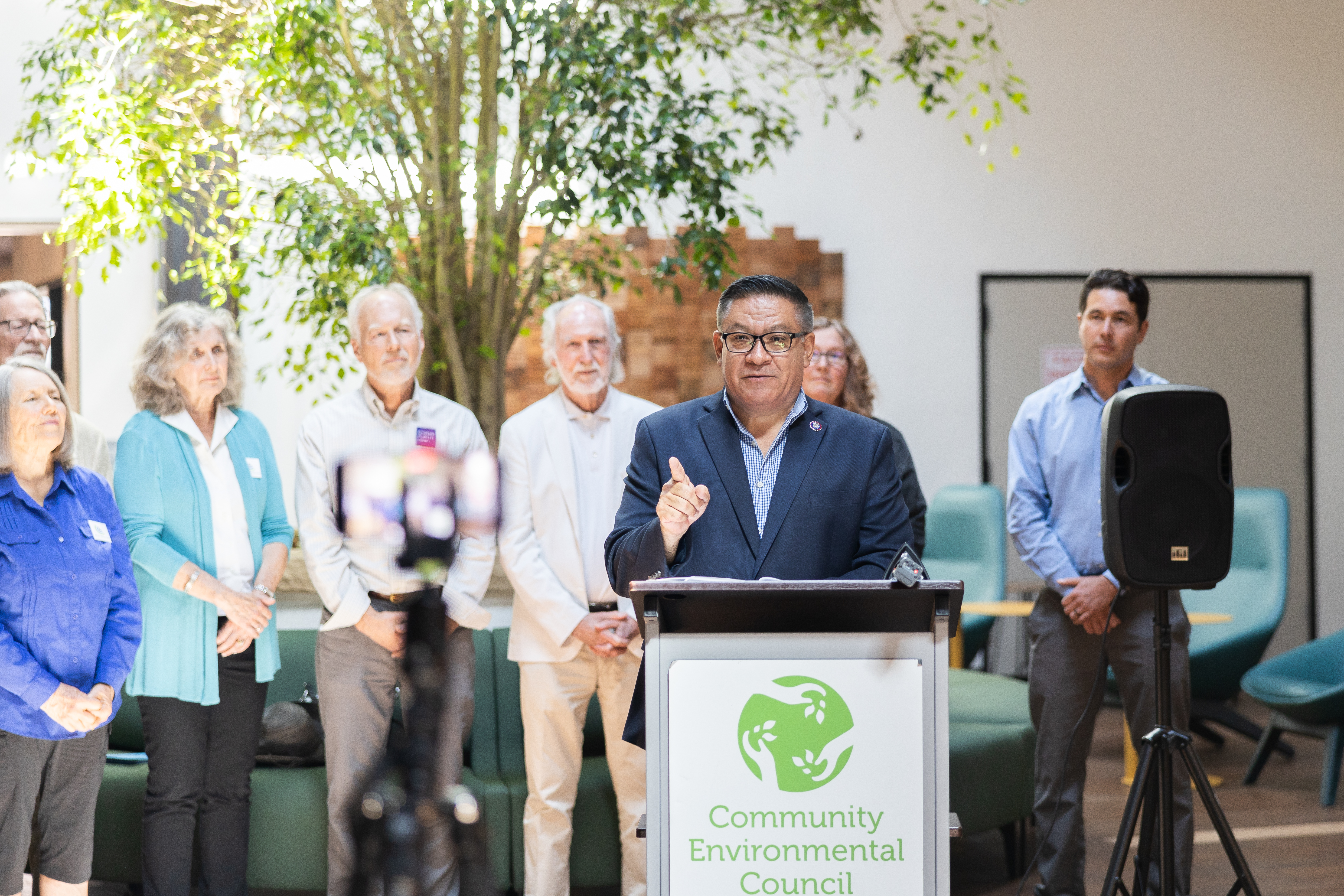Rep. Carbajal Announces Bill to Fight Climate Change with Emission Fees
Santa Barbara Congressmember Stops by Community Environmental Council’s Downtown Digs to Discuss Energy Innovation and Carbon Dividend Bill

Santa Barbara Congressmember Salud Carbajal took advantage of the Community Environmental Council’s almost totally brand-new downtown digs on Monday to announce he’d just become the principal sponsor of a bill to impose a fee of $15 per metric ton on all fossil fuels extracted in the United States. The bill is a market-driven, nonregulatory pathway to reduce the consumption and generation of greenhouse gases propelling climate change and would also impose “adjustments” on the price of fuels imported into the United States to reflect their carbon intensity and to ensure American producers do not suffer a competitive disadvantage.
The bill — now known as the Energy Innovation and Carbon Dividend — has been introduced three times before. Despite bipartisan support from 90 congressional cosponsors, it was never acted upon by the committee to which it had been assigned, let alone referred out for a congressional vote.

Pushed by the Citizens Climate Lobby, the carbon fee — not a tax — has been endorsed by 27 Nobel Prize–winning economists, not to mention four former chairs of the Federal Reserve, as well as the Wall Street Journal. The thinking is that by charging producers directly for the greenhouse gases generated by their production processes — at first it would be $15 per metric ton but would increase by $10 in each successive year —consumers will start looking more aggressively for alternative fuel sources.
Under the act sponsored by Carbajal, the revenues generated would not go to pay for any new or existing government program but would be paid out in monthly dividends to help offset any inflationary impact the carbon fee inflicted. (Some climate change advocates — reportedly UCSB’s Leah Stokes — argue any funds collected go to programs more directly attacking climate change, not to residents in the form of dividend checks. Supporters insist their path is faster and less fraught by association with government regulation.)
Carbajal cited studies that estimated such dividends would come to $800 to $1,000 a year for a typical family of four. After 10 years, he said, the amount would increase to $4,200.
Santa Barbara’s chapter of the Citizens Climate Lobby is pushing hard for this measure. Chapter spokesperson Stan Roden noted that the proposal is so market-driven that even the libertarian-minded Cato Institute has endorsed it. So, too, has the more liberal Brookings Institute.
Whether such stellar pedigrees carry much weight behind the scenes in Washington, D.C., has yet to be seen, but Carbajal — famous for touting his bipartisan bona fides — will have his hands full given that Congress now finds itself on the precipice of yet another government shutdown. House Speaker Kevin McCarthy — facing a revolt by members of the far-right Freedom Caucus — will be even harder pressed to find the votes necessary to pass another continuing spending resolution. Carbajal, who has already experienced four government shutdowns, could soon find himself wading through his fifth.
Supporters of the Energy Innovation Act claim it will achieve “net zero” when it comes to greenhouse gas emissions by the year 2050 and bring carbon dioxide generation down to 50 percent of what it was in 1990. In addition, they claim the fee will create 2.8 million new jobs and reduce the number of premature deaths by 230,000.
Charlotte Smith contributed reporting to this story.





You must be logged in to post a comment.